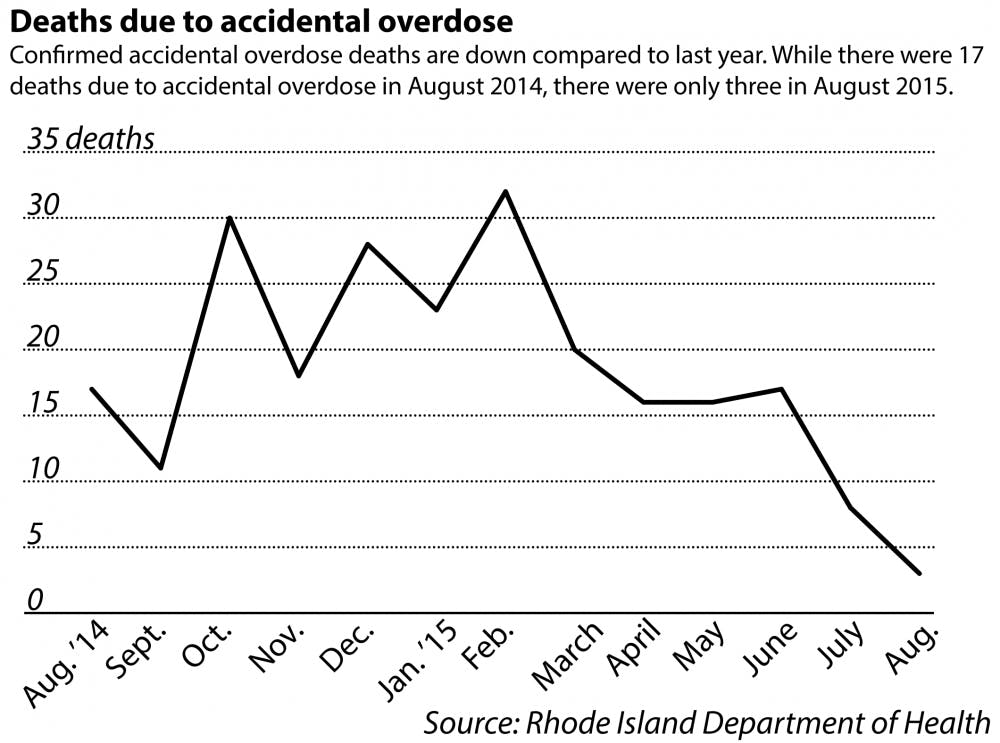Gov. Gina Raimondo has formed a task force to address the opioid epidemic that claimed the lives of 239 Rhode Islanders in 2014. The task force will build on efforts to curb the epidemic made by legislation and research.
The Rhode Island Department of Health has named the 32-member task force as their means of fighting against the opioid overdose epidemic. The task force includes representatives from law enforcement and health care, said Joseph Wendelken, RIDOH’s acting public information officer. “It’s a broad spectrum of people.”
RIDOH supports the renewal of the Good Samaritan Law, which offers legal protection to people who give assistance to those at risk of overdose. The law expired July 1, and the General Assembly will have the opportunity to renew it when they next convene.
On Sept. 8, Rhode Island received a $3.76 million grant from the Centers for Disease Control and Prevention. RIDOH hopes to achieve four goals with this grant, according to the grant’s one-page summary. The department’s first priority is to make the Prescription Drug Monitoring Program more accessible and increase registration in the program, Wendelken said. In addition to making the PDMP more accessible, the department also aims to increase education about prescribing opioids and making Narcan, an opioid overdose antidote, more available, said Jennifer Koziol, unintentional injury program coordinator at RIDOH.
Second, the department hopes to provide more community interventions for those at risk of overdose. RIDOH has contracted with the University to create software to help partners develop and target these interventions, Koziol said.
Third, the department will evaluate laws, policies and regulations, including quantifying the impact of the now-expired Good Samaritan Law, according to the one-page summary.
The department’s final goal is to implement a “rapid response project,” according to the one-page summary. This includes providing more data about overdoses in the state and making smaller grants available to community-based organizations.
On July 15, Rep. David Bennett, D-Warwick and Cranston, passed a bill that would require all schools to carry Narcan. “If you’ve got the tools to save someone’s life, why not have it in the schools?” Bennett said. The impact of the law has been mostly educational, Bennett said, adding that it helps students understand the resources available to them.
Traci Green, associate professor of emergency medicine and epidemiology, who is advising the task force, is vying for pharmacies to provide rescue kits for those at risk of overdose. Regulations set by RIDOH in March 2014 allow a prescriber to issue an order to an organization that will give it access to Narcan. Prior to this, Narcan was only available through community-based programs, which are geographically centered in the cities. Greater access through pharmacies will lead to greater overdose prevention, Green said.
Green said she hopes the task force will “change the epidemic and give hope to the people.”





